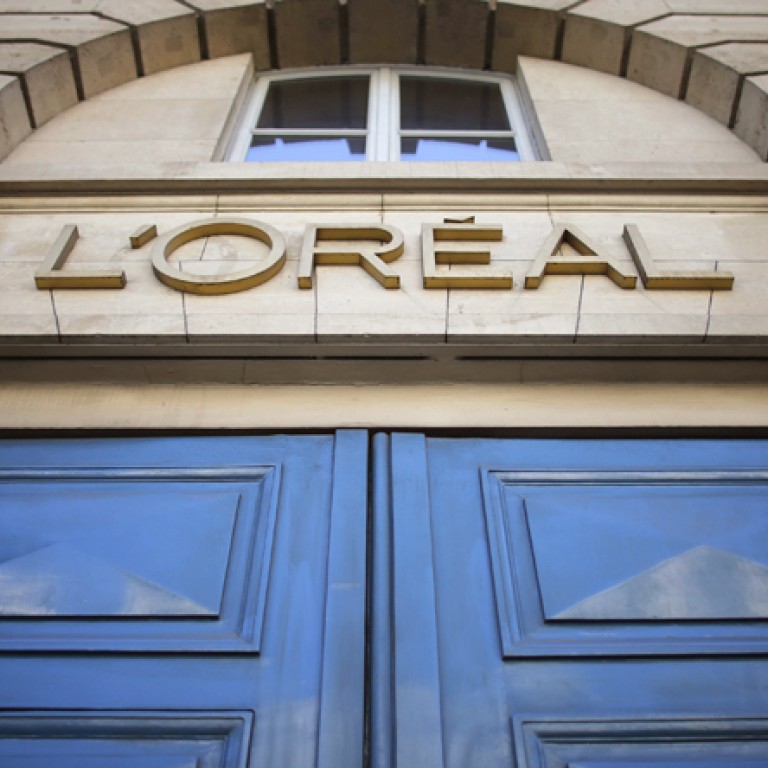
L'Oreal brand and Revlon call time in China
Multinationals quit as high prices and rising local cosmetics affect sales
While most multinational firms are fighting to make their way into mainland China, two well-known Western beauty brands are calling it quits.
L'Oreal, the world's largest cosmetics company, recently announced it would be pulling its Garnier brand out of the mainland market, the same week that United States beauty stalwart Revlon said it would completely exit the country.
The news is at odds with the mainland cosmetic industry's impressive top lines numbers. Industry turnover totalled 24 billion yuan (HK$30 billion) in 2010 and, despite some sluggishness over the past year, is projected to double over the next two years, according to analyst forecasts. It's a young, growing segment and penetration is low, but the market is highly fragmented.
Mainland consumers saw little reason to buy mass market Garnier and Revlon products when they were priced higher than local brands and also were not perceived to offer any added benefits.
"[Chinese consumers] want to see the beauty benefits and prefer to invest in more quality products," research firm Ipsos' associate director Bertrand Ternat said. "It's not too big an investment. Even a pack of cream is not that expensive if you use it in the long run and think of the daily cost … Garnier being present at supermarkets decreased its image. They don't believe in the effectiveness in the low positioning."
Revlon also confused customers by selling at supermarkets and also at high-end department store beauty counters.
Chinese brands such as Inoherb, PehChaoLin and Herborist are increasingly forces to be reckoned with and are improving product quality and sales channels distribution said Li Jianan, a cosmetics analyst with CI Consulting.
Bocom International consumer analyst Summer Wang said the two events signalled the rise of Chinese domestic brands, especially in lower tier cities.
"It makes sense. L'Oreal needs to focus on its main brands and Garnier is also overlapped with its newly acquired brand Magic [Holdings]."
In August last year, L'Oreal agreed to pay HK$6.54 billion to acquire mid-market domestic brand Magic, the top-selling facial mask brand on the mainland.
Mainland consumers are so price sensitive that even Hong Kong cosmetics giant Sasa, despite attracting hordes of mainland customers to its Hong Kong outlets, is not performing well in mainland China, where the same products are more expensive due to taxes. Sasa reported an interim loss of HK$27.2 million for its mainland operations last month. Overall turnover for the segment decreased 3.3 per cent from the year before to HK$167.2 million and same-store sales growth dropped 6.9 per cent.
It's not all bad news for foreign mass market cosmetics brands, though. Maybelline, also owned by L'Oreal, holds the largest market share among makeup brands in the mainland, according to Euromonitor. However, its product mix is heavily focused on coloured cosmetics, rather than hair and skincare products
In the face of such stiff competition from domestic players, expect to see more acquisitions by foreign brands, Ternat said.
"The next move of the big groups, I would say, is more concentration of the market, developing higher end products. For sure, there will be fewer players by acquisition. The big groups will focus on acquiring local brands and developing them. Korean brands and Japanese brands will do it, too," he said.
"I would not be surprised if L'Oreal repositions Magic in the coming years and pushes it higher, developing additional products using this Chinese DNA."
